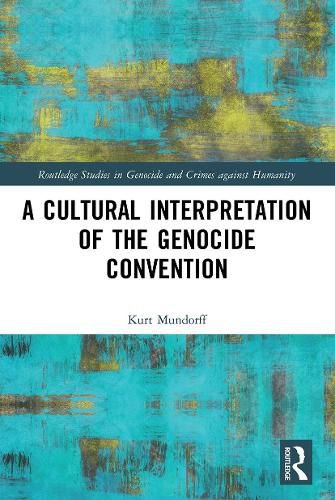Readings Newsletter
Become a Readings Member to make your shopping experience even easier.
Sign in or sign up for free!
You’re not far away from qualifying for FREE standard shipping within Australia
You’ve qualified for FREE standard shipping within Australia
The cart is loading…






This book critiques the dominant physical and biological interpretation of the Genocide Convention and argues that the idea of culture is central to properly understanding the crime of genocide.
Using Raphael Lemkin’s personal papers, archival materials from the State Department and the UN, as well as the mid-century secondary literature, it situates the convention in the longstanding debate between Enlightenment notions of universality and individualism, and Romantic notions of particularism and holism. The author conducts a thorough review of the treaty and its preparatory work to show that the drafters brought strong culturalist ideas to the debate and that Lemkin’s ideas were held widely in the immediate postwar period. Reconstructing the mid-century conversation on genocide and situating it in the much broader mid-century discourse on justice and society he demonstrates that culture is not a distraction to be read out of the Genocide Convention; it is the very reason it exists.
This volume poses a forceful challenge to the materialist interpretation and calls into question decades of international case law. It will be of interest to scholars of genocide, human rights, international law, the history of international law and human rights, and treaty interpretation.
$9.00 standard shipping within Australia
FREE standard shipping within Australia for orders over $100.00
Express & International shipping calculated at checkout
This book critiques the dominant physical and biological interpretation of the Genocide Convention and argues that the idea of culture is central to properly understanding the crime of genocide.
Using Raphael Lemkin’s personal papers, archival materials from the State Department and the UN, as well as the mid-century secondary literature, it situates the convention in the longstanding debate between Enlightenment notions of universality and individualism, and Romantic notions of particularism and holism. The author conducts a thorough review of the treaty and its preparatory work to show that the drafters brought strong culturalist ideas to the debate and that Lemkin’s ideas were held widely in the immediate postwar period. Reconstructing the mid-century conversation on genocide and situating it in the much broader mid-century discourse on justice and society he demonstrates that culture is not a distraction to be read out of the Genocide Convention; it is the very reason it exists.
This volume poses a forceful challenge to the materialist interpretation and calls into question decades of international case law. It will be of interest to scholars of genocide, human rights, international law, the history of international law and human rights, and treaty interpretation.